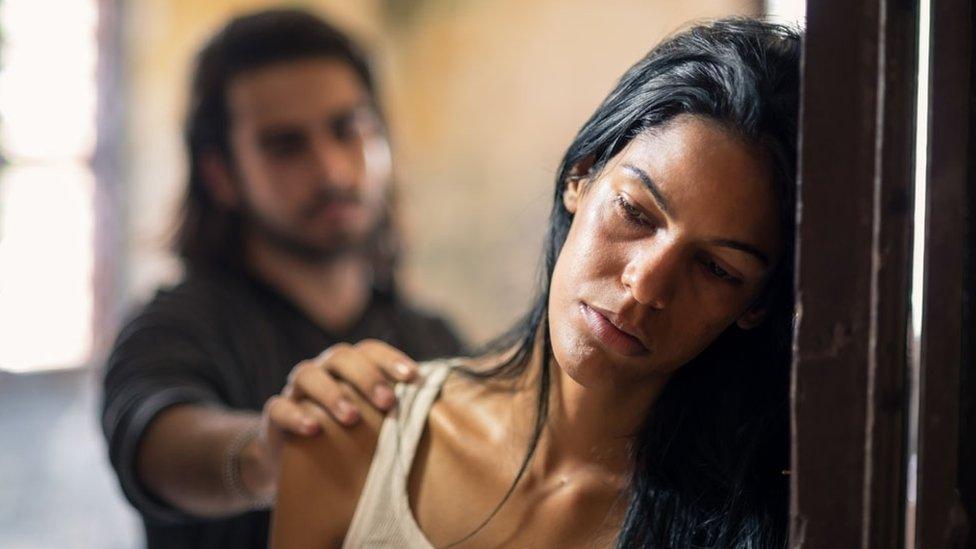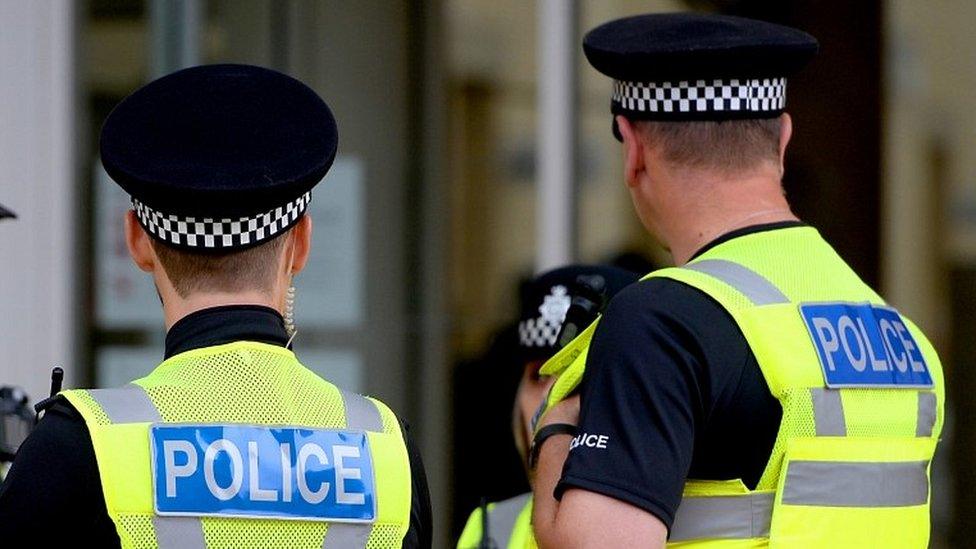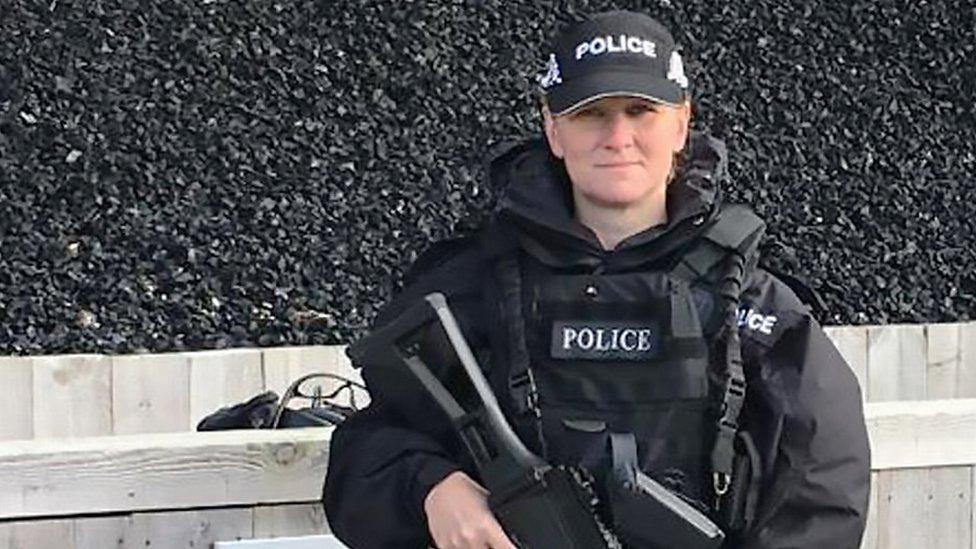Police attitudes to sexual violence 'problematic', report finds
- Published

A charity has called on Police Scotland to address 'problematic attitudes' towards sexual violence
Police Scotland has been urged to tackle "widely held problematic attitudes" towards sexual violence among its officers in a new report.
Rape Crisis Scotland said some survivors felt interrogated by officers or were met with disbelief.
Dep Ch Con Malcolm Graham said work was needed to improve the experiences of those reporting sex crimes.
It comes after a tribunal found evidence of "sexist culture" in an Edinburgh armed policing unit.
'You weren't raped, it was consensual'
The report, external details the experiences of the survivors reference group, external - which is made up of those who have engaged with the Scottish justice system in some way, from reporting crimes that went no further through to prosecutions.
One person told the support charity that the detective inspector who dropped their case had said: "You weren't raped, it was consensual."
Meanwhile, another survivor said they had to give seven statements to the police, with the last of these lasting for eight hours without a break.
The report noted many of those reporting rape and sexual assaults were left "feeling as though they were being cross-examined".
It also described an occasion when a woman was "told she'd done the wrong thing by accepting a drink of water from people who found her after she had been attacked".
Another woman who attempted to report being raped by a family member said: "There was kind of a standing joke if I phoned, you could hear him [the officer] in the background going 'I wonder how long it will take me to make her cry'."
'Some officers believe myths'
Sandy Brindley, chief executive of Rape Crisis Scotland, told the BBC's Good Morning Scotland programme that people reporting crimes should be treated with "respect and courtesy".
She said: "There is a sense like any other institution in Scotland, there are officers in Police Scotland that believe myths around rape - for example, that false allegations are very common, our worry is those attitudes influence how they interpret survivors who are in contact with them.
"The most fundamental issue is attitude towards rape and women and women's sexuality. We have women telling us they feel judged in terms of their behaviour - particularly when there's been alcohol involved or some consensual sexual contact prior to the rape.
"We're hearing this consistently from survivors to say that it's a problem. We know when police get it right, it can have a hugely positive impact on whether somebody is willing to engage with the criminal justice system."
The report made a series of recommendations to the force which it said, if implemented, "could radically improve the landscape of seeking justice for survivors of rape, sexual assault and abuse in Scotland".
As well as calling for "urgent work" to address the attitudes highlighted, the report suggested staff at all levels should be given trauma-informed communication training.
It added that those reporting such offences should be given a consistent, named single point of contact, and that video statements should be used more widely to "reduce time and trauma involved in giving evidence".

Some survivors said they felt police did not believe them when they reported sexual violence
Last month Scotland's chief constable ordered an independent review into a tribunal which found evidence of a "sexist culture" in an armed policing unit.
The force has ordered an independent review into the case which was brought by former firearms officer Rhona Malone, external.
Rape Crisis Scotland has called for "firm leadership" from the force to put an end to problematic behaviour among officers and recently met with Ch Con Iain Livingstone to discuss the experiences of survivors of sexual violence.
Meanwhile Dep Ch Con Graham welcomed the charity's report, saying the use of video recorded interviews was being piloted in three divisions and work was ongoing with the charity and the Crown Office and Procurator Fiscal Service.
He said the report had highlighted "the positive difference specialist officers can make", and that the use of Sexual Offence Liaison Officers (SOLOs) was "generally welcomed".
He continued: "We have a duty and an opportunity to lead a change in policing and across society which improves the experiences of all women and listening to Rape Crisis Scotland and the survivor reference group is an important part of that work. We know there is much still to do."
Related topics
- Published6 October 2021

- Published14 October 2021

- Published11 October 2021
